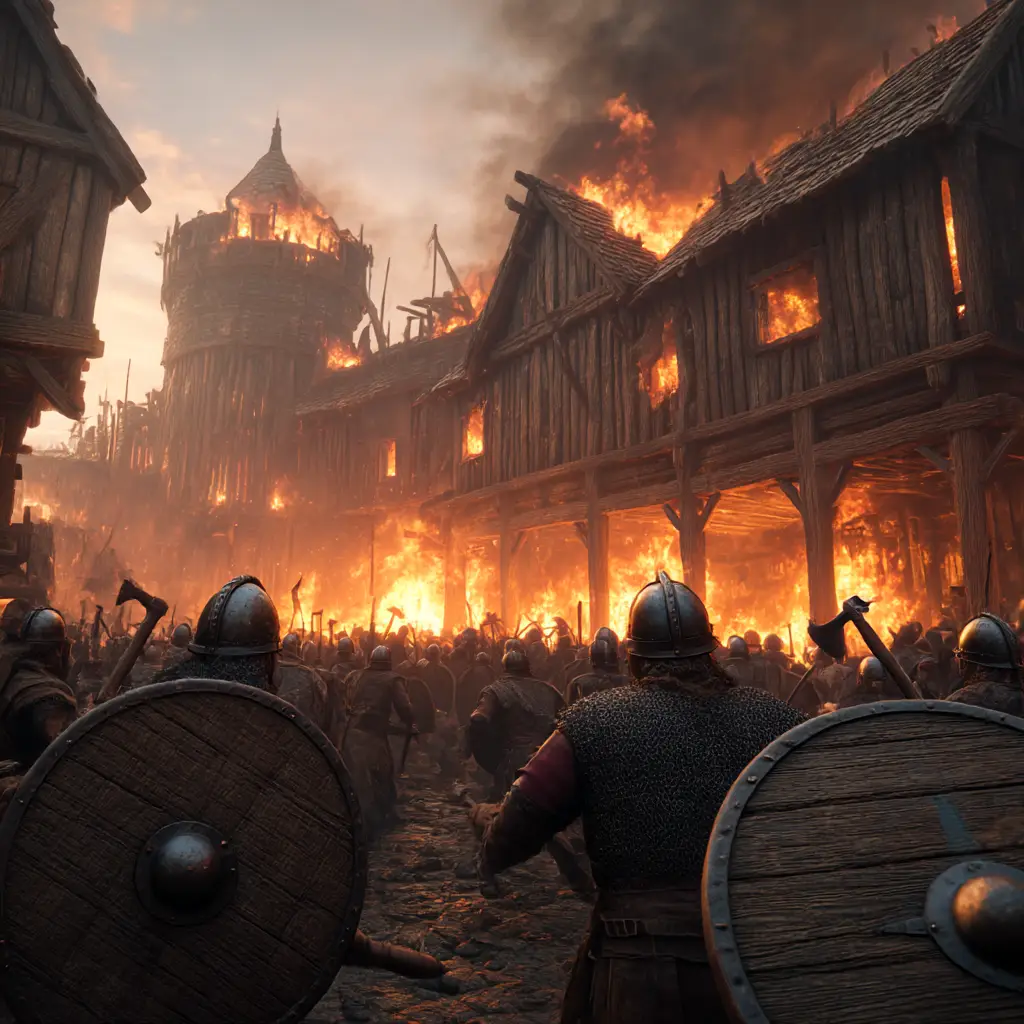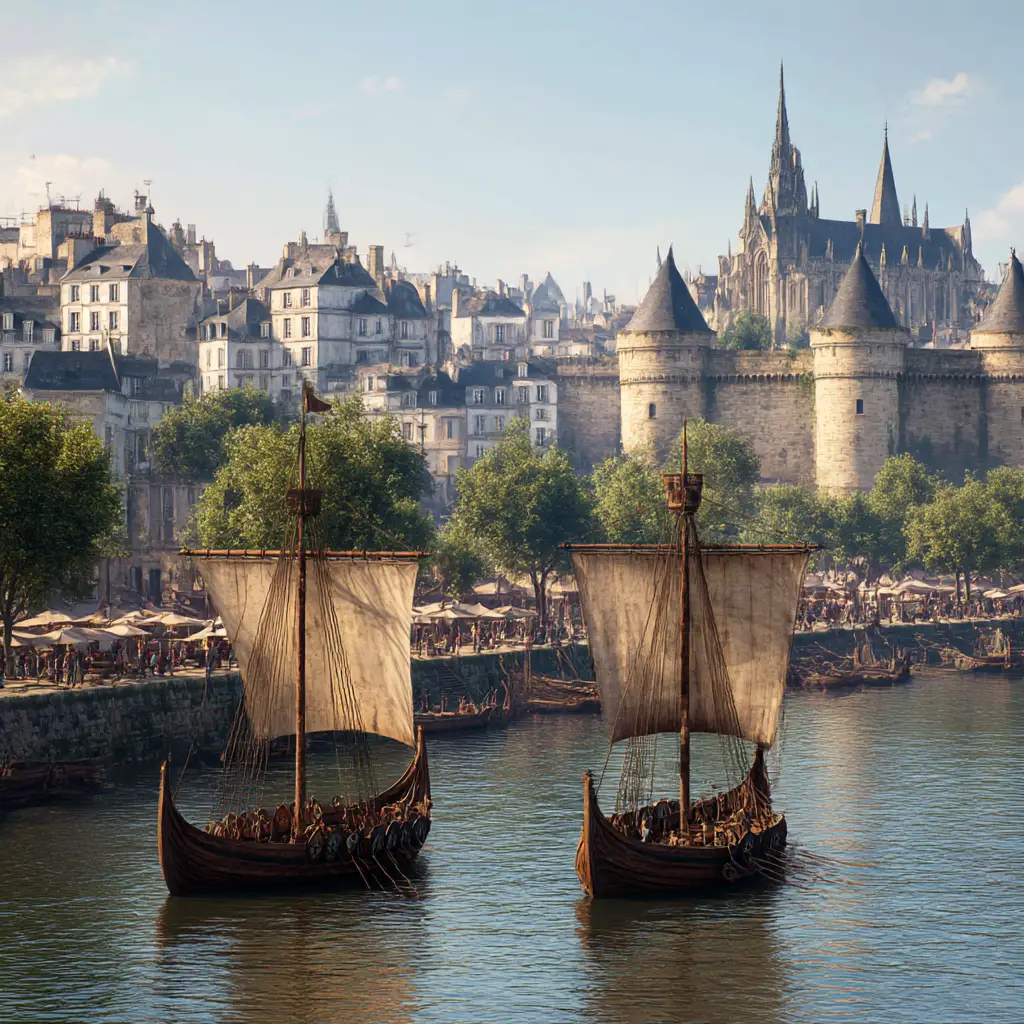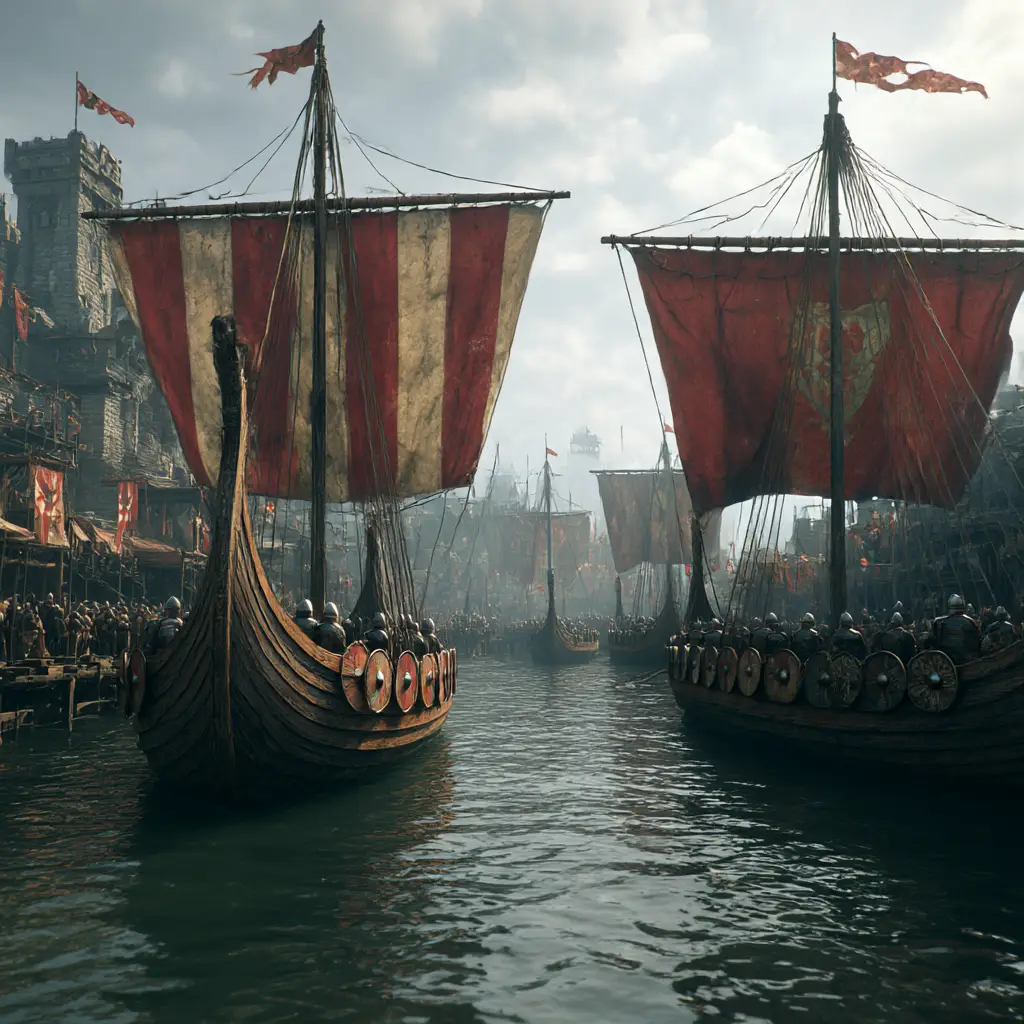In the year 843 the city of Nantes on the River Loire in western France was the target of a devastating Viking raid. This attack took place during a turbulent period in the history of the Frankish kingdoms, when political fragmentation and civil conflict left coastal and riverine towns exposed to seaborne raiders.
The Viking fleet is believed to have sailed from bases established along the coast of Aquitaine, making its way up the Loire before reaching Nantes. The city was an important centre of trade and religion, home to the cathedral and the bishop’s seat. Its wealth and prominence made it a natural target for Viking forces seeking both plunder and prestige.
On 24 June 843, the Feast of St John the Baptist, the Vikings launched their assault. The people of Nantes were gathered in celebration when the raiders struck. Accounts describe how the cathedral was stormed and Bishop Gohard, along with many clergy and worshippers, was killed. The invaders ransacked the city, seizing treasure, goods, and captives. The massacre left a lasting scar on the community, with both the religious and civic life of Nantes severely disrupted.
The timing of the attack, coinciding with an important Christian festival, added to the shock and horror. Contemporary sources highlight the brutality of the raid and the vulnerability of Frankish defences at the time. The Frankish rulers, engaged in internal struggles following the division of Charlemagne’s empire, were slow to respond. This lack of unified resistance allowed Viking groups to exploit the Loire valley as a base for further expeditions.
The raid on Nantes marked one of the earliest large-scale Viking incursions into the heart of western Francia and set the stage for decades of Norse activity in the region. From their foothold on the Loire, Viking bands would continue to strike inland, threatening cities such as Tours, Angers, and Orléans.
For Nantes, the attack of 843 was both a tragedy and a turning point. It demonstrated the scale of the Viking threat and the inability of contemporary rulers to protect their people. Over time, repeated raids forced the Franks to reconsider their military strategies, leading eventually to fortified defences and negotiated settlements with the Norse.



